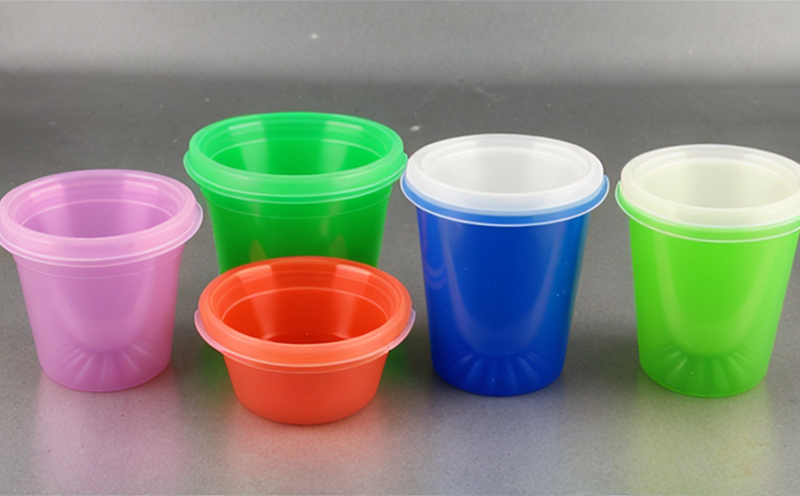DIN 53765 Disposable Plastics Thermal Resistance Testing
The DIN 53765 standard is a crucial specification for evaluating the thermal resistance of disposable plastics, particularly in medical and consumer product applications. This testing method ensures that materials used in single-use items such as syringes, IV sets, and food packaging can withstand heat without degradation or loss of integrity.
The primary purpose of this test is to assess how well a plastic material can maintain its mechanical properties under high-temperature conditions. This is essential for ensuring the safety and reliability of disposable products that might be exposed to elevated temperatures during manufacturing, storage, or use. The standard provides detailed instructions on specimen preparation, testing procedures, and acceptance criteria.
The test procedure involves subjecting a sample to a specified temperature for a defined period under controlled conditions. The sample is then evaluated for changes in physical properties such as tensile strength, elongation at break, and impact resistance. Compliance with the standard ensures that disposable plastics meet the necessary performance requirements, thus protecting users from potential hazards associated with compromised materials.
The DIN 53765 test is particularly important for medical disposables like intravenous (IV) catheters, syringes, and other devices that are often exposed to high temperatures during autoclaving or sterilization processes. It also applies to food packaging materials intended for microwaveable applications.
In summary, DIN 53765 testing ensures that disposable plastics meet stringent thermal resistance requirements, thereby enhancing product safety and reliability in critical applications.
Specimen Preparation
The specimens used in this test are typically cut from the plastic material to standardized dimensions. The shape of the specimen can vary depending on its intended use but is usually a flat sheet or strip. It's important that the specimens are representative of the actual product and free from defects.
Testing Procedure
The test involves subjecting the prepared specimens to a specified temperature for a set duration. The temperature range and time vary based on the specific application, but common parameters include temperatures between 120°C to 150°C for durations of up to 6 hours.
Acceptance Criteria
The acceptance criteria are based on the retention of mechanical properties. The specimen must maintain its tensile strength and elongation at break within specified limits after exposure to heat. Any significant reduction in these properties could indicate a risk of failure under real-world conditions.
Benefits
- Ensures compliance with international standards, enhancing product safety and reliability.
- Promotes consistency in manufacturing processes by providing clear testing procedures.
- Reduces the risk of product failures due to thermal degradation, thereby protecting end-users.
- Aids in quality control by identifying substandard materials early in the production process.
Customer Impact and Satisfaction
Clients benefit from increased trust with regulatory bodies, which can enhance their market reputation.
Improved product performance leads to higher customer satisfaction and reduced warranty claims.
The ability to demonstrate compliance with international standards adds value to the client's offerings.
Real-World Applications
This testing is vital for manufacturers of medical disposables, food packaging, and other applications where thermal resistance is a critical factor. By ensuring that disposable plastics meet the specified criteria, this test helps protect consumers from potential hazards.
International Acceptance and Recognition
The DIN 53765 standard is widely recognized in Europe for evaluating the thermal resistance of disposable plastics. Its acceptance extends beyond national borders, contributing to a harmonized approach to product safety across different markets.
This standard is often referenced alongside other international standards such as ISO and ASTM, further emphasizing its importance in the global regulatory landscape.
Application Scope
The scope of DIN 53765 includes various types of disposable plastics used in medical devices, food packaging, and consumer products. This ensures that a wide range of materials are subject to rigorous thermal resistance testing, thereby enhancing overall product safety.





